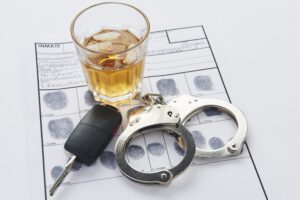If you are hoping to receive a restricted license in Michigan after a revocation, you are likely feeling very relieved right now. Still, you may have many questions about what a restricted license is, how long your license will be restricted, and what you will need to do to get your full driving privileges back.

Under a restricted license, you would only be allowed to go to certain places, and those would be limited to those that are essential to everyday life and the parameters of your restrictions.
Following are the basic facts you should know about how this process works.
What is a restricted license in Michigan, and what are the limitations?
When you apply to get your license restored after a revocation, you will most likely start off with a restricted license. With this license, most drivers would be able to drive for the following purposes:
- Driving to and from work
- Driving to and from school
- Completing community service
- Attending alcohol or drug treatment classes or therapy sessions
- Getting medical treatment for you or someone in your household
- Attending probation meetings
If your revocation was due to drunken driving, you will most likely be required to use an ignition interlock device as well. In Michigan, this is not required after a first DUI, but it is if your blood-alcohol level was higher than 0.17 at the time of the incident. It also would be required for a subsequent drunken driving violation.
Another rule under a restricted license in Michigan is that you carry proof of your destination with you when you drive. This may be something like a class schedule or work schedule.
What do I need to do to obtain this limited license?
You can apply to get your license back one year after the revocation, although that may be longer for a third drunken driving offense or a drunken driving accident that resulted in injury or death. A third DUI is considered a felony, so you would have to wait five years before you can try to get your license back.
Getting your license restored in Michigan is a very involved process. You would have to apply for a hearing, obtain letters of recommendation, prove that you attended the required sobriety classes, provide favorable drug screening results, and show that you will be a responsible driver moving forward.
If the Michigan Secretary of State’s board agrees to reinstate your license, it will likely be a restricted license as described above. In most cases, you would be on the restricted license for six months to one year, with a one-year term being more common. After this period, you must go through similar steps to apply for an unrestricted license, at which time you would have to prove that you followed the rules of the restricted license.
Do I Need an Attorney to Help Me?
You can apply for a restricted license in Michigan on your own, but if you don’t get it right the first time, you will have to wait an additional year before you can apply again. It also can be stressful and overwhelming to navigate all the steps on your own.
For this reason, working with an attorney who is experienced in helping drivers get their licenses back after a DUI is a wise decision. You’ve been through enough over the past several years, so you don’t want to have to cope with the stress any longer than necessary.
If you need help getting your license back, contact me. I can help you get your life back on track.
